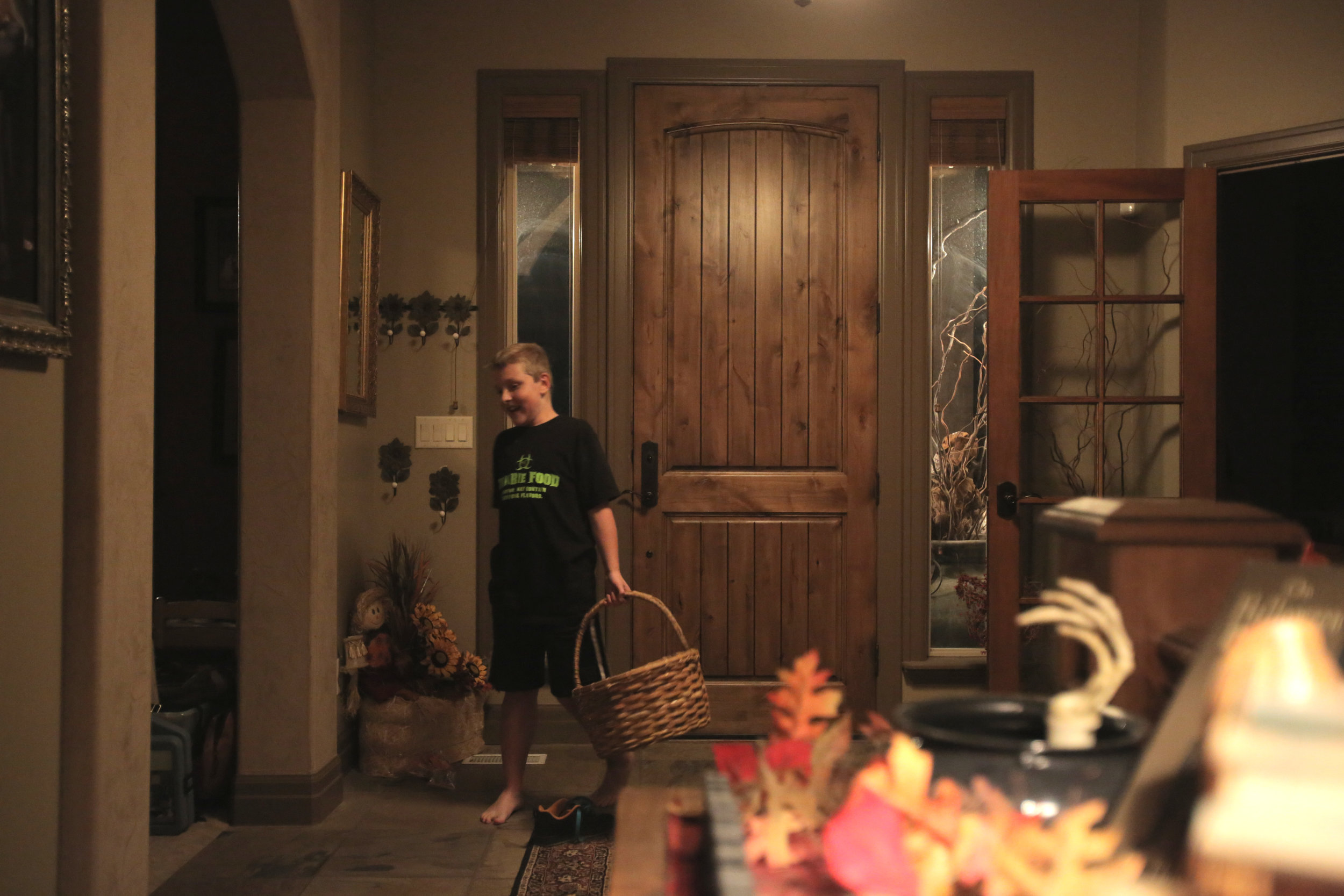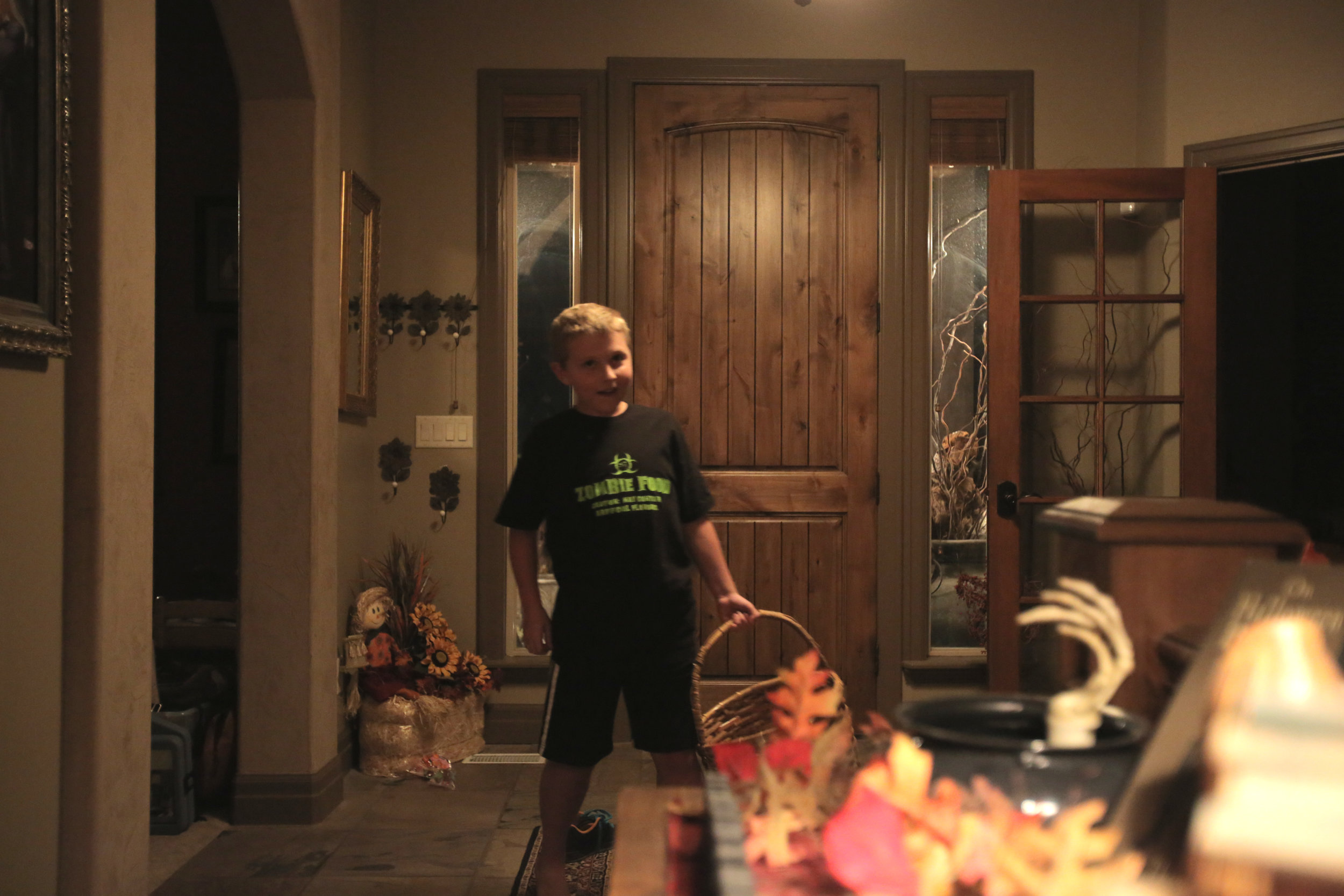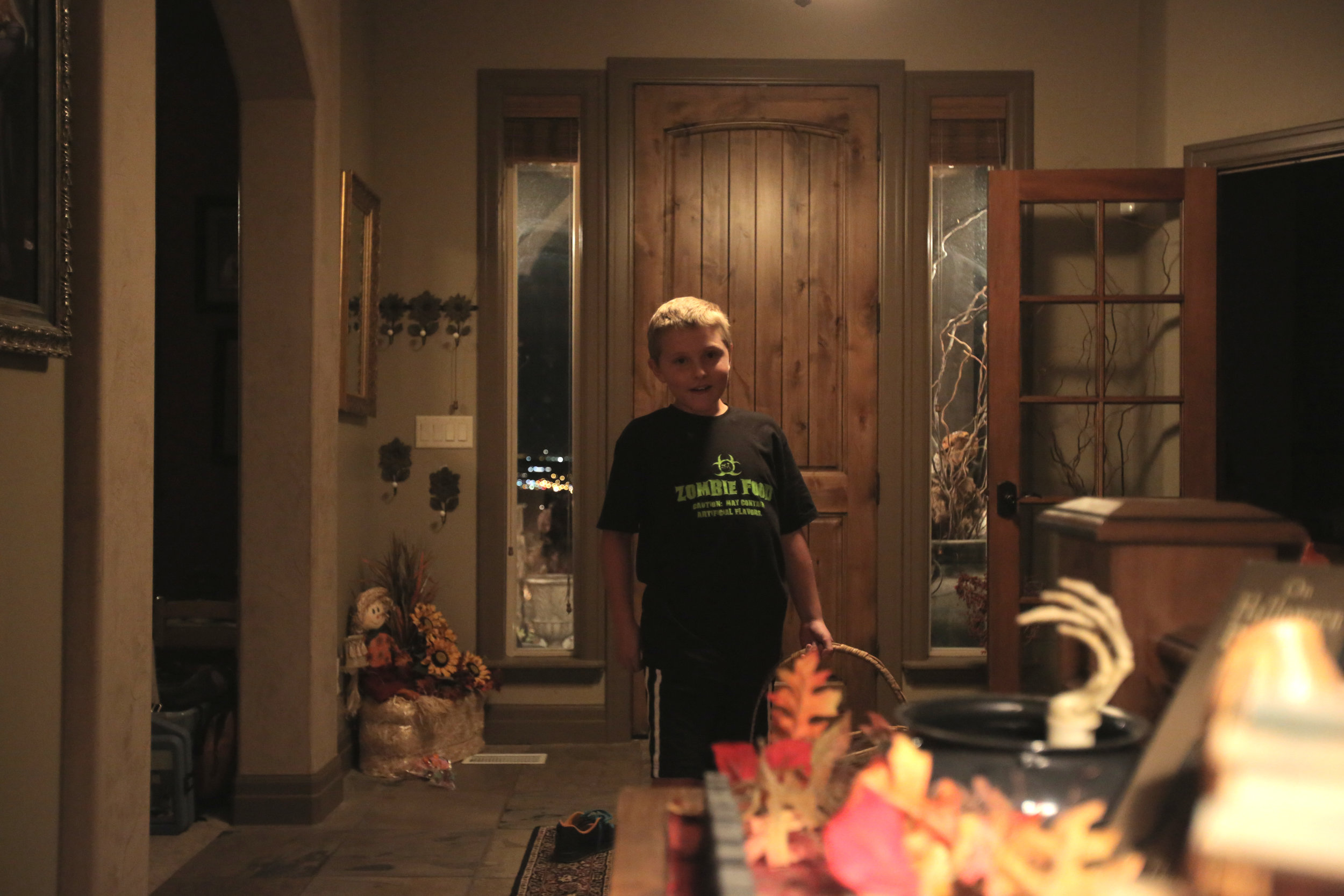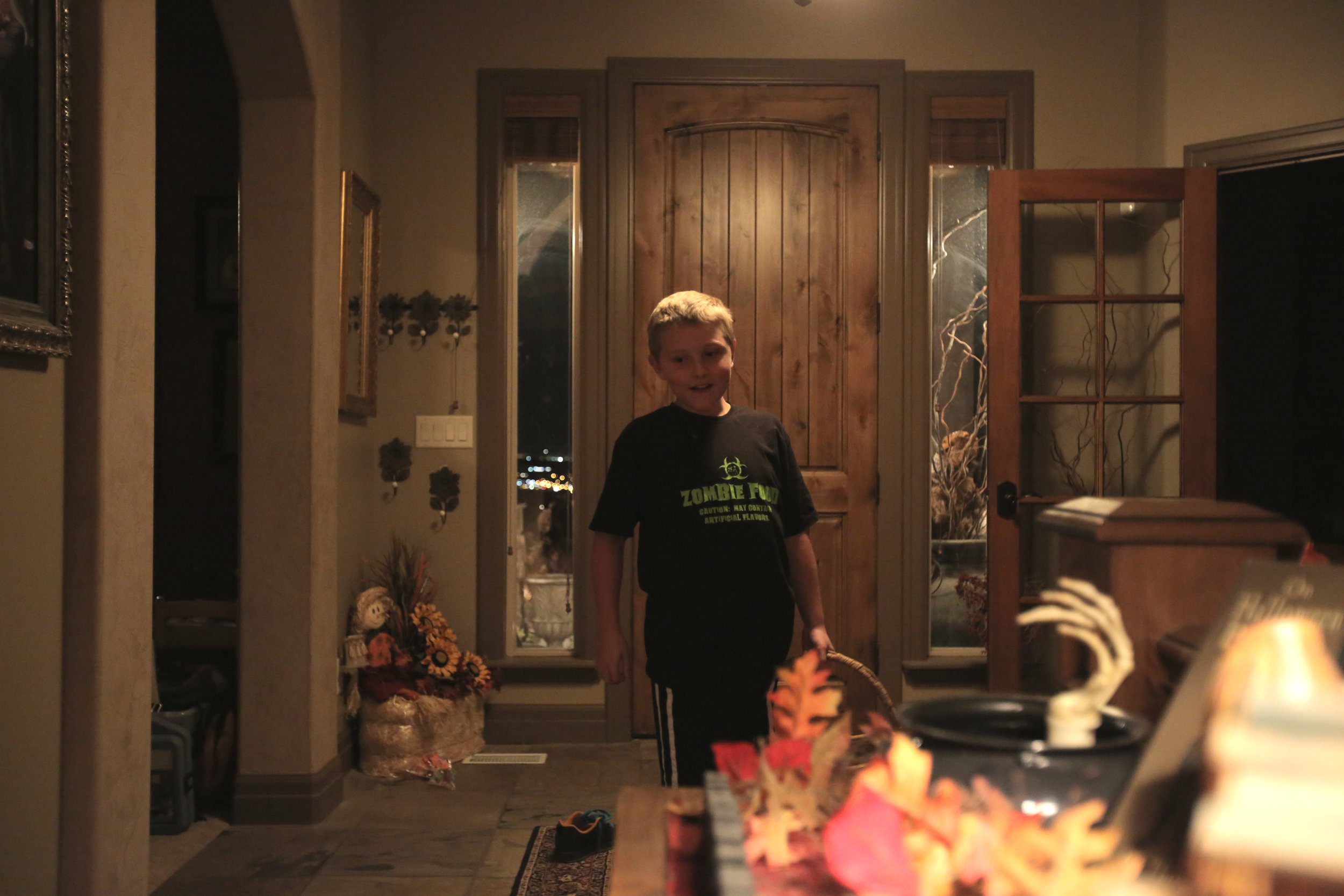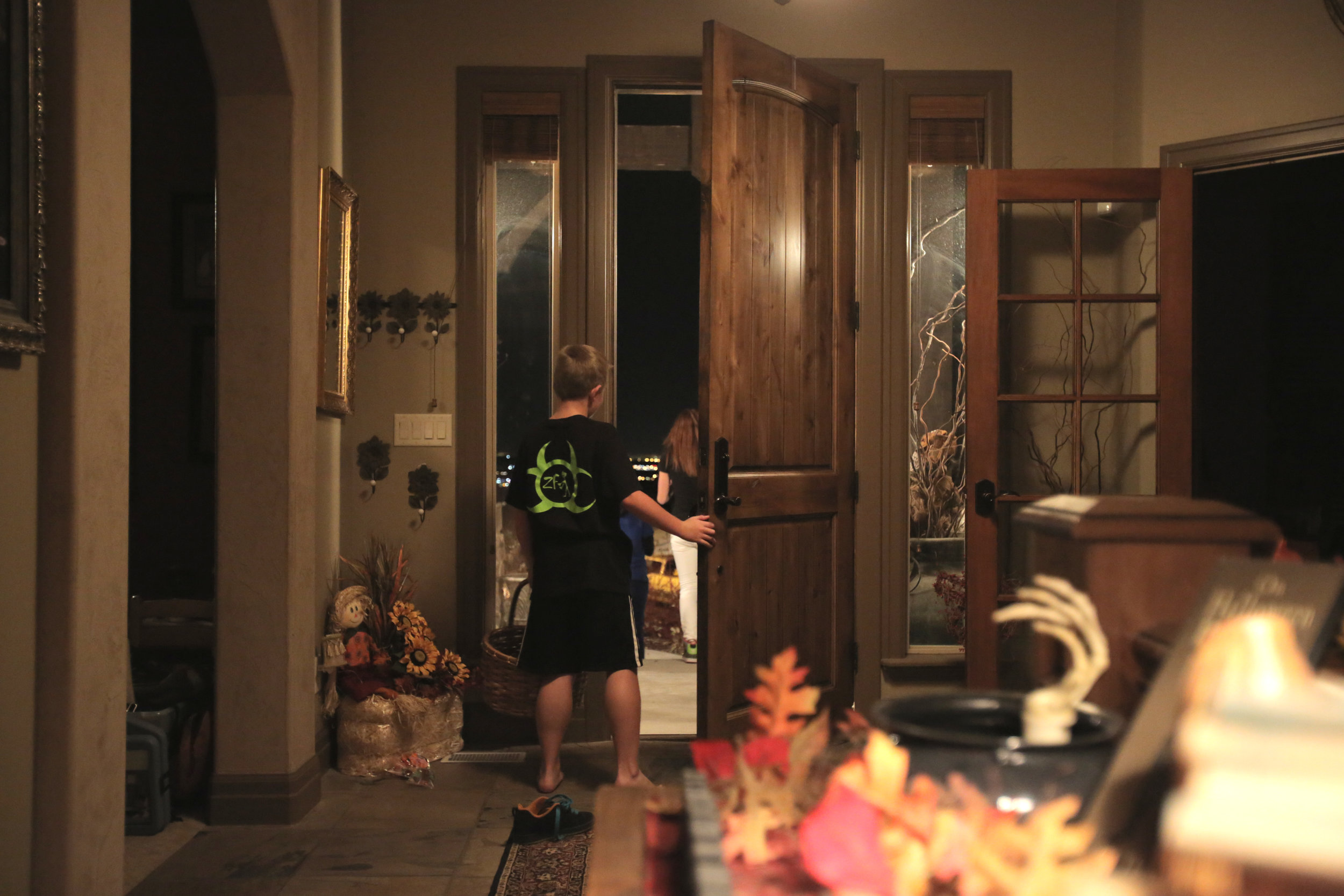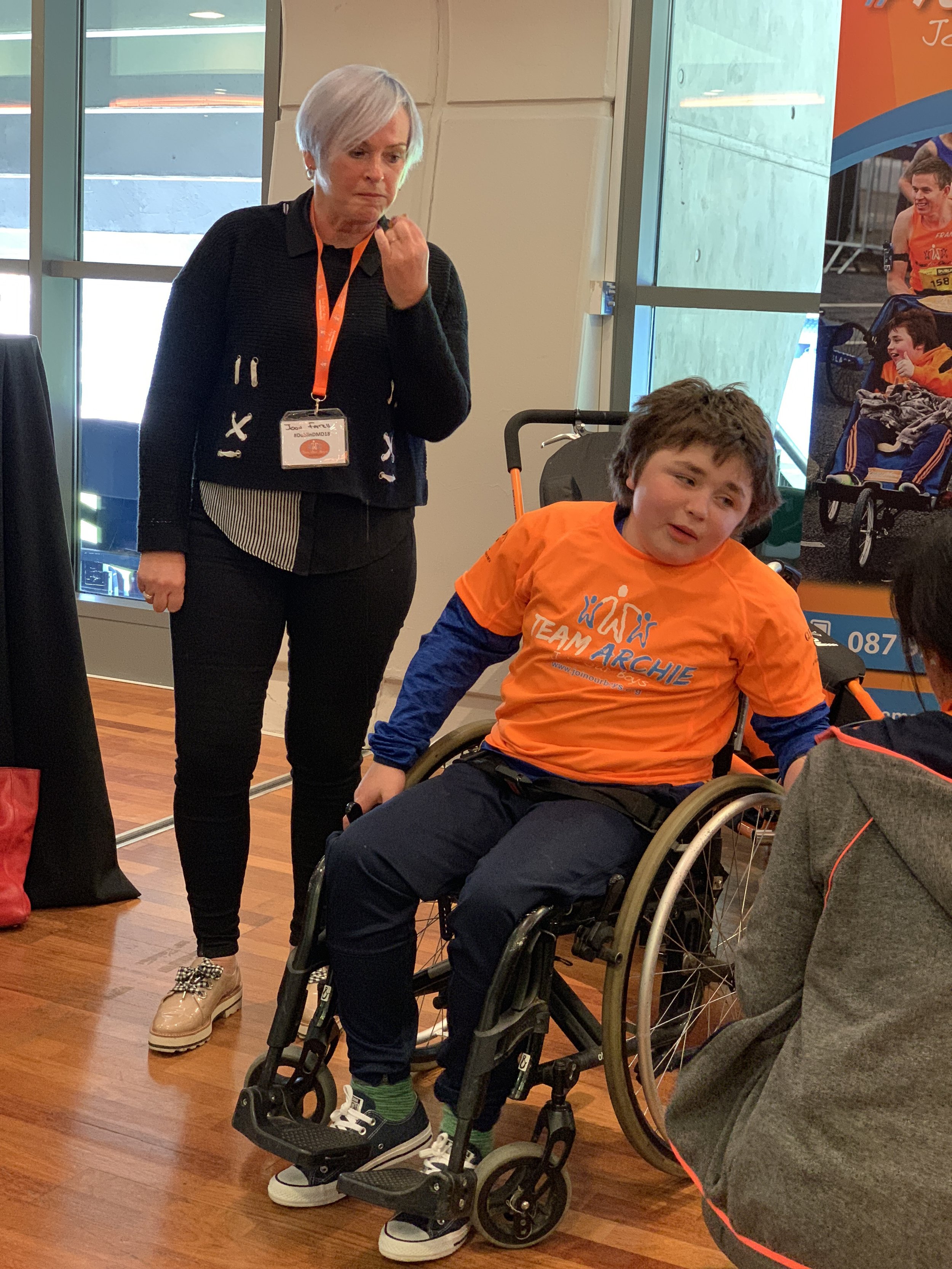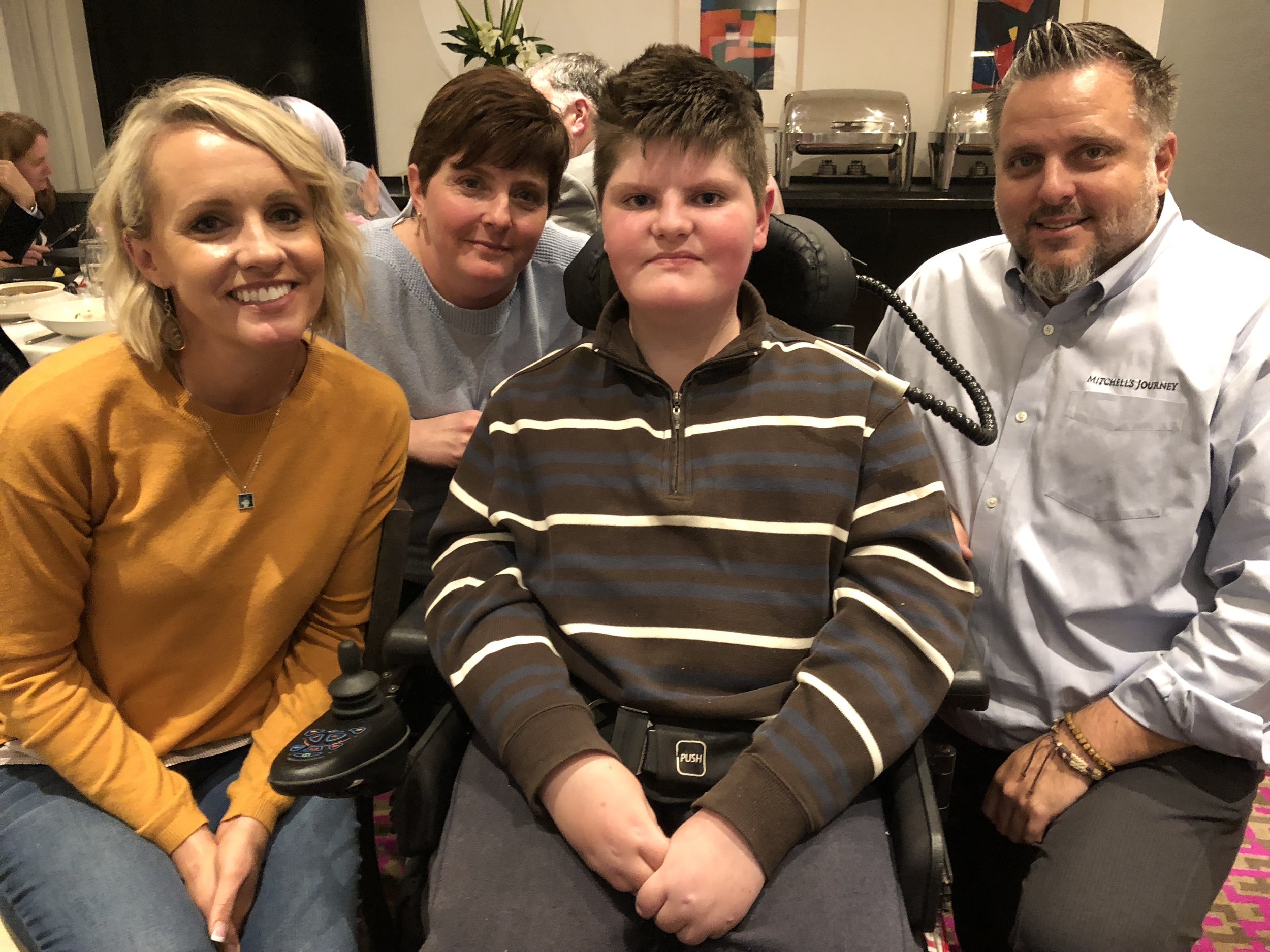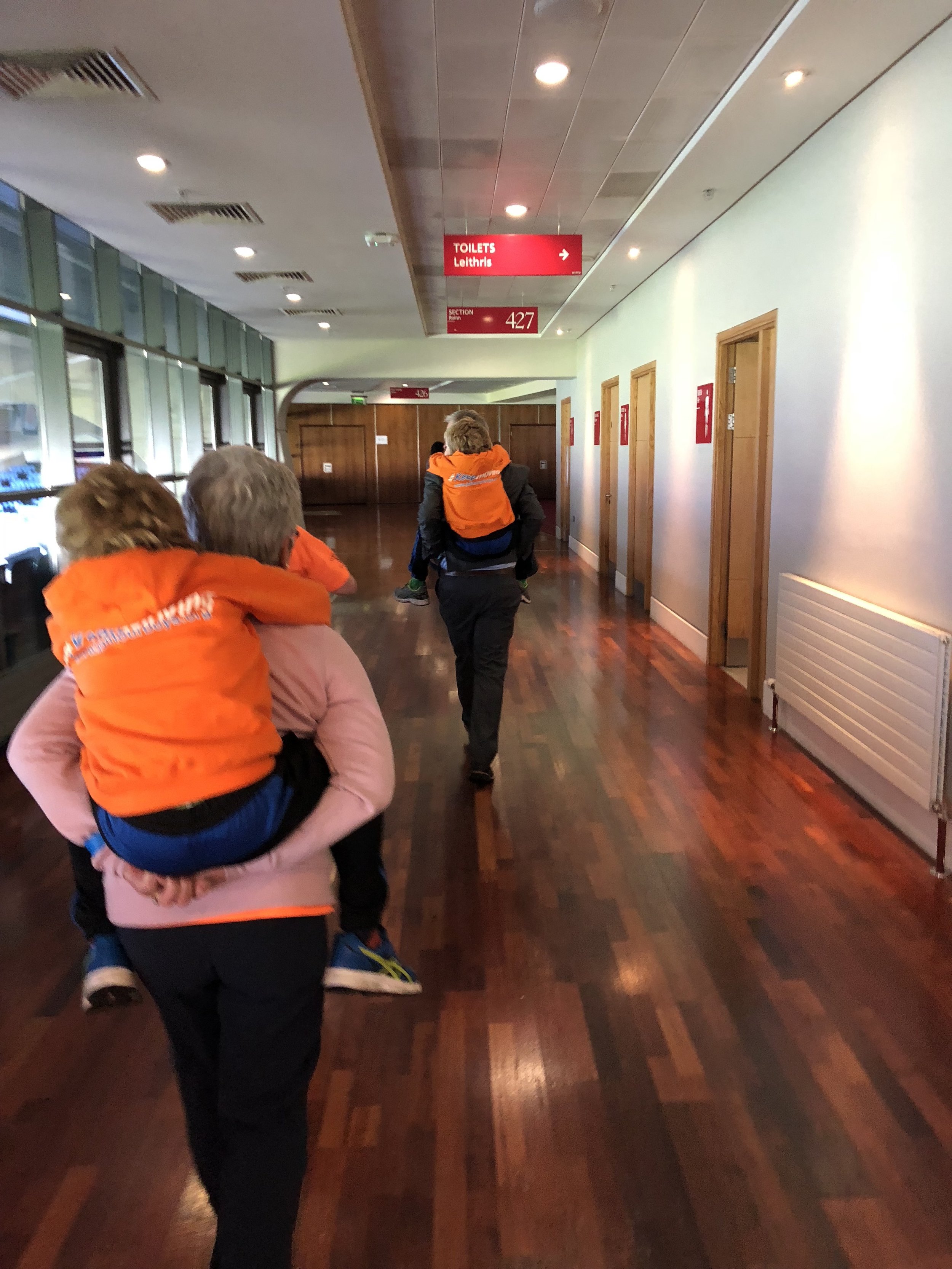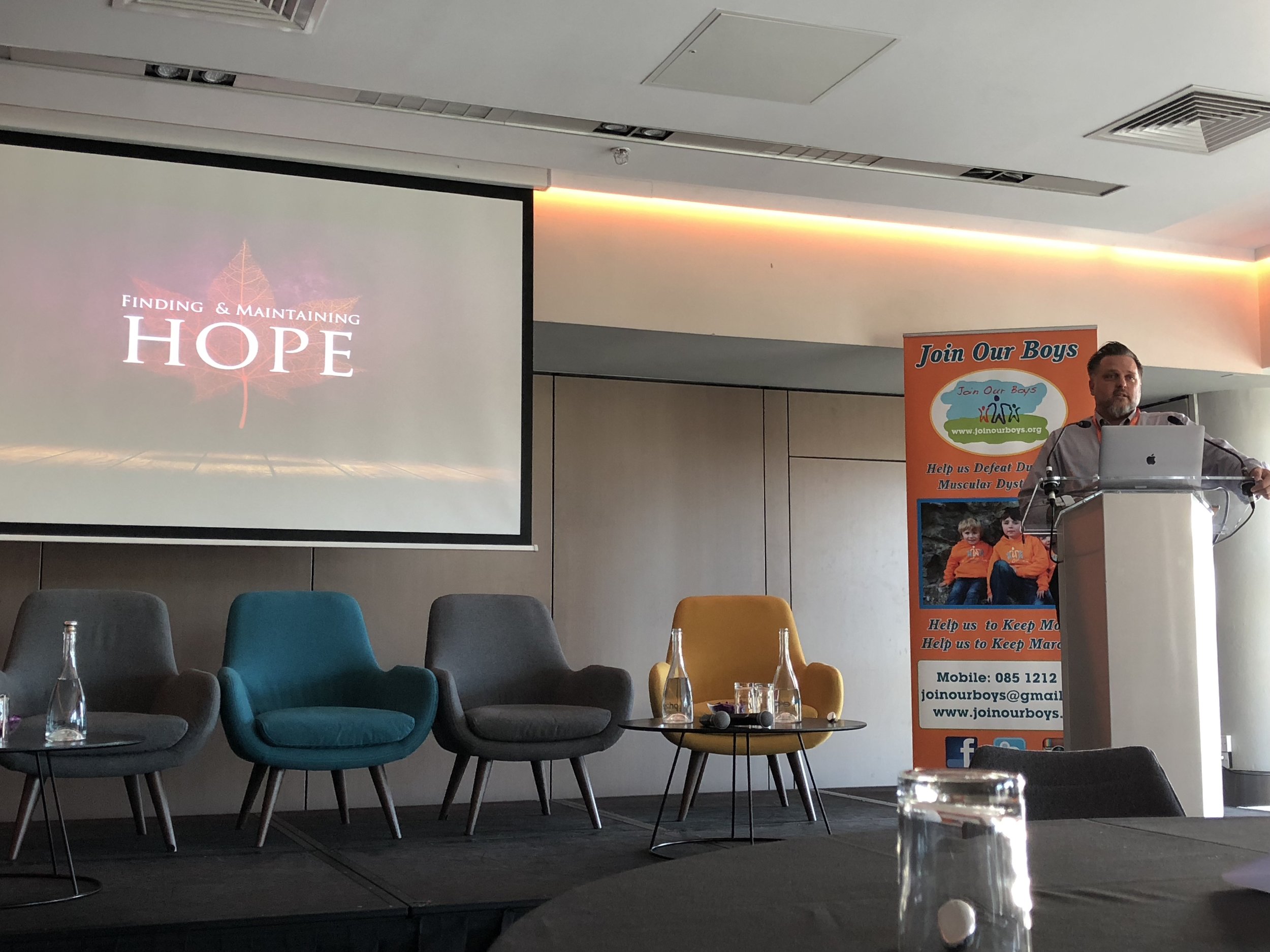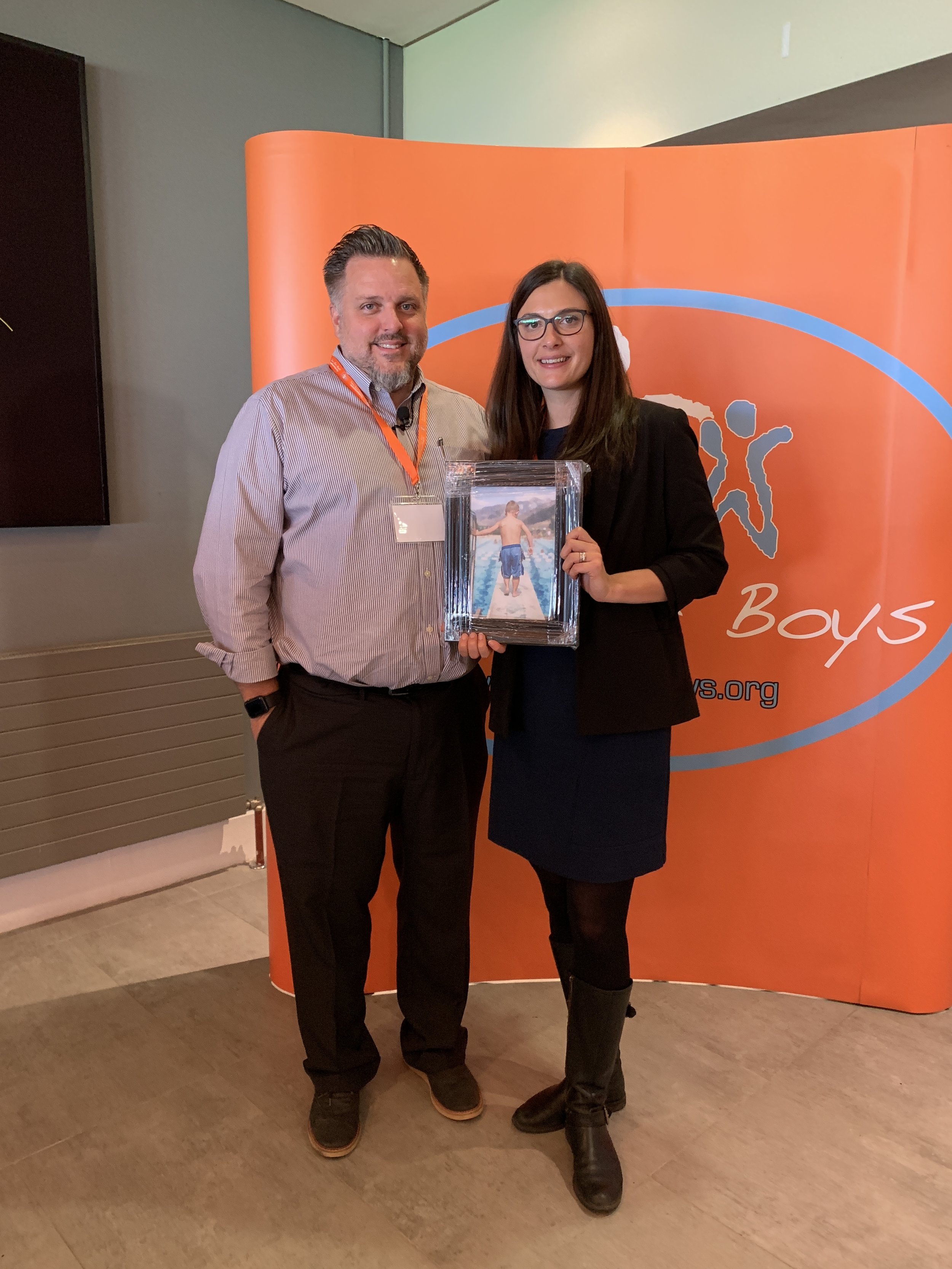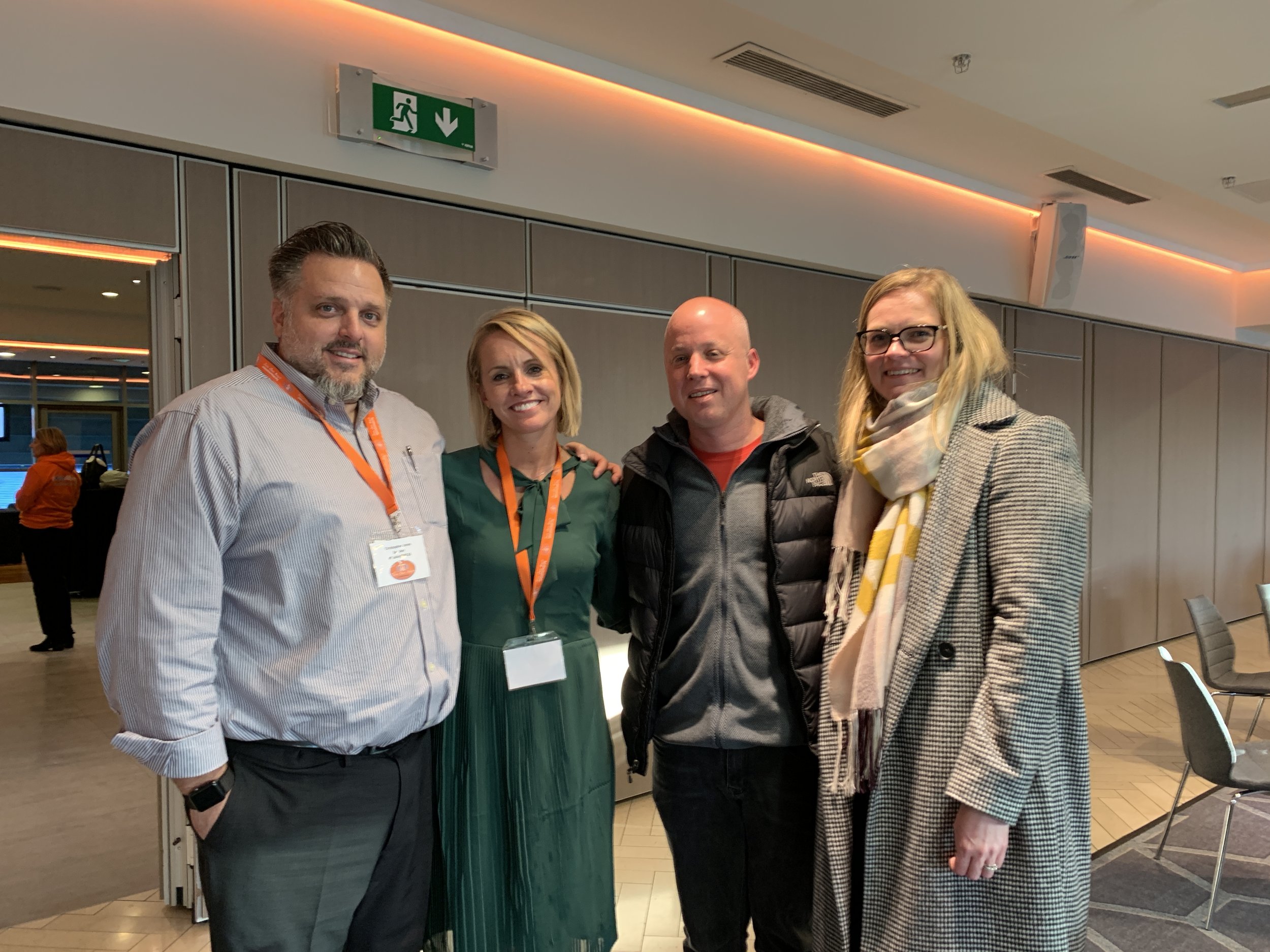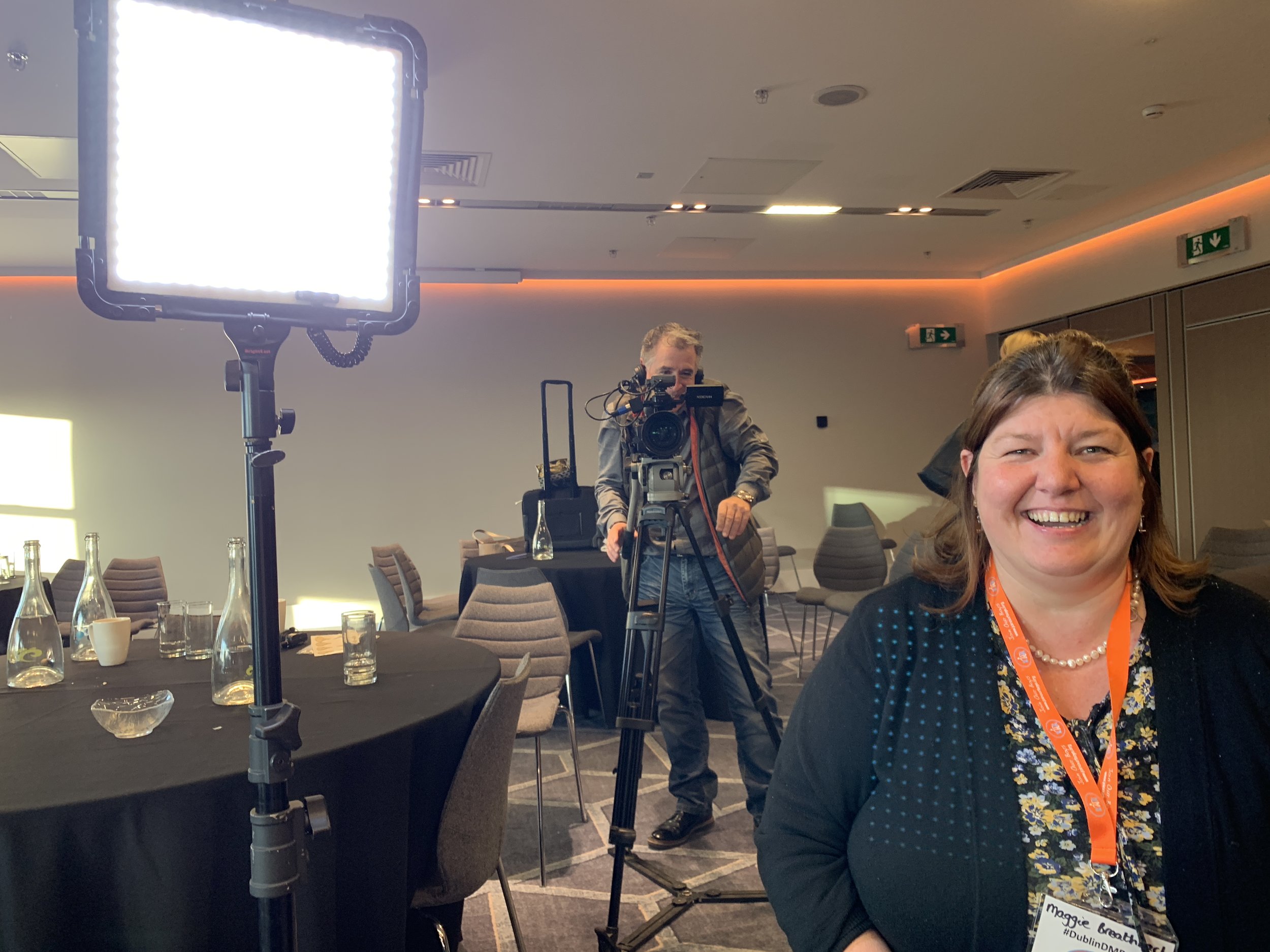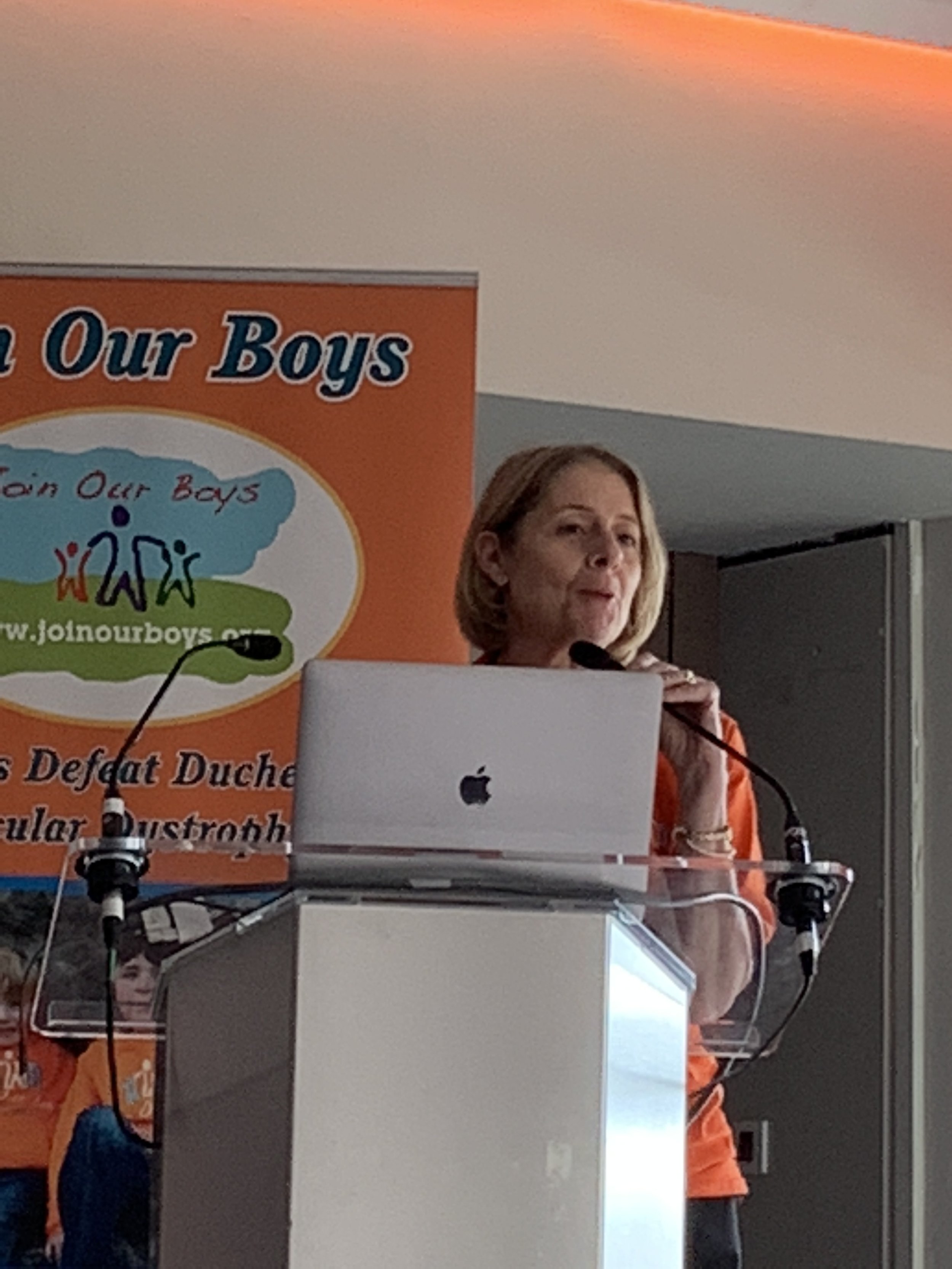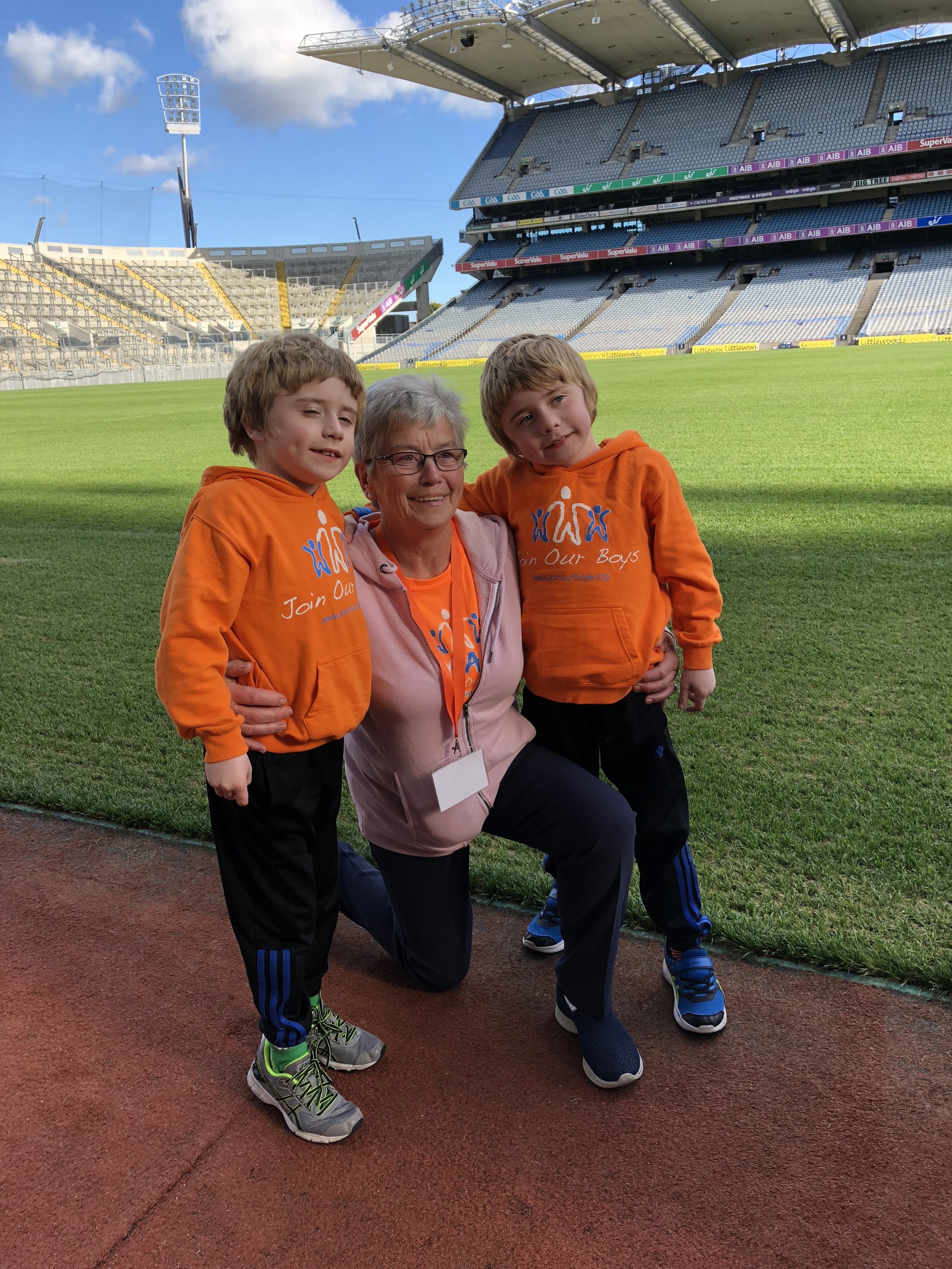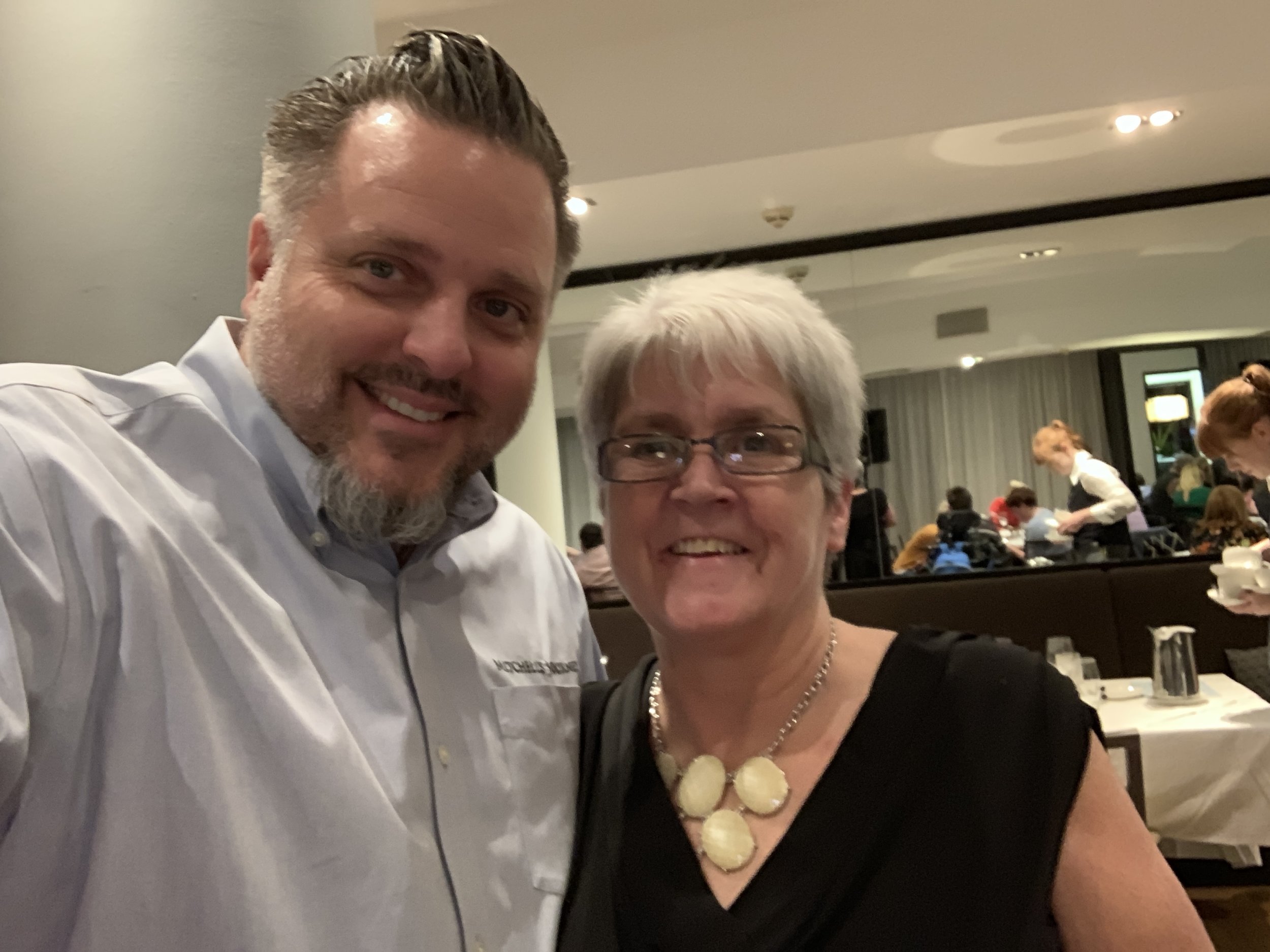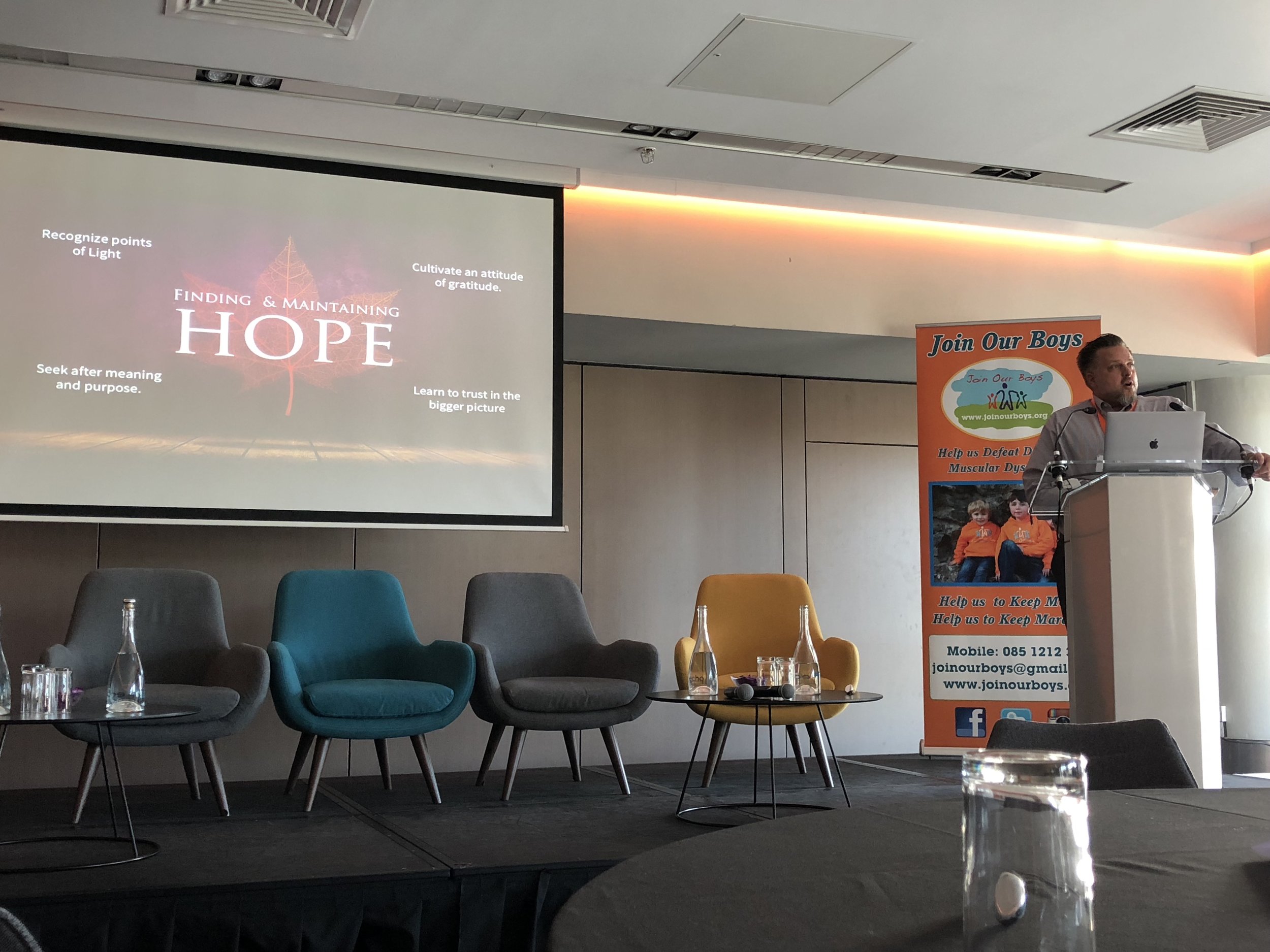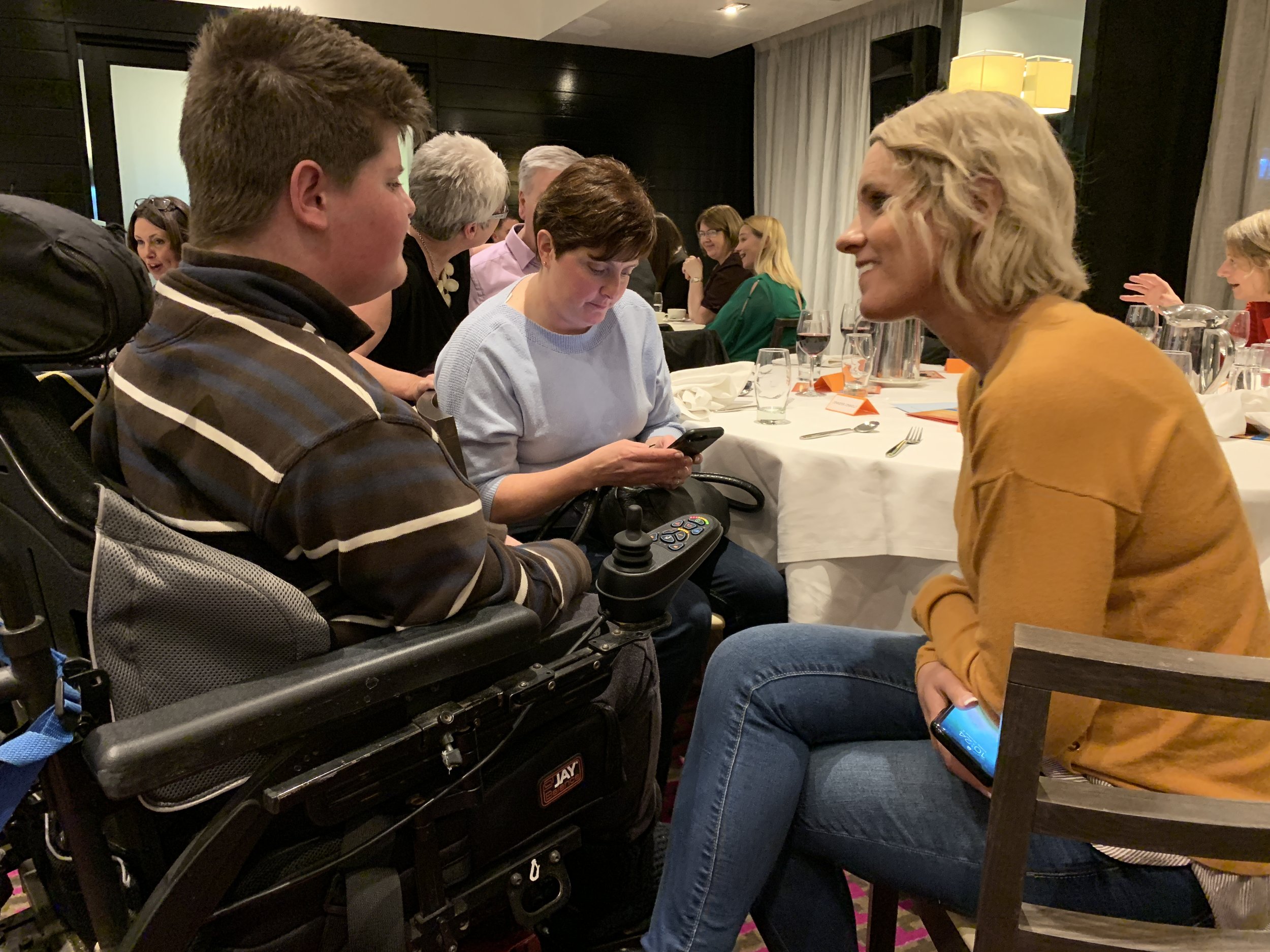With Halloween tonight, I can’t help but think of Mitchell’s last. In previous years, I the weight of grief was heavy on my soul – to the point, my lungs felt shallow and my chest heavy.
This holiday is different.
Though I miss little Mitch, I feel a great deal of love and gratitude for all that ever was. Yes, I wish I had the power to bring him back – but I am a mere mortal and can only bring his memory to my mind and heart. For now, that will have to do.
I want to re-share something I wrote in 2014 – just a year after having lost him. Lately, I’ve been re-reading my previous journal entries here and I’ve wondered to myself, “What’s changed?” I’ll share some of those observations soon.
Tonight, I’ll share what I posted just a few years ago. It’s a meditation on where the real treats of life can be found; and it’s found in the giving, not the getting.
Here is that earlier post:
Trick-or-Treating was always difficult for him. Because his muscles were wasting away he couldn't go very far … each year his Halloween adventures became shorter and shorter. Even though he had a motorized scooter, getting up and down, climbing a stair or two to reach a neighborhood door was exhausting for him. He usually couldn’t visit more than 6-7 homes before he could hardly walk and wanted to go home.
To help him, Mitchell’s brothers or sister would take his trick-or-treat bag to the door while Mitch sat in his scooter on the sidewalk. Generous neighbors would lovingly place candy in his bag as little Mitch smiled in the darkness. He was always grateful.
There was another aspect to Halloween Mitch loved even more than treasuring candy unto himself. Mitch loved giving candy away at the door. To some of his closest friends who approached the door, Mitch would give them his favorite candy from his own bag.
I took this photo of Mitch on his last Halloween. He wanted to stay home and give out candy instead of trick-or-treating himself. Each time the door would shut he would turn around only to have a big smile on his face.
Mitch learned early in his life that in giving he received so much more than those who got; a life lesson he never forgot.
Later that winter my mother came to visit for a few days. We were cuddled in the basement watching a movie when Mitch struggled to get up from the couch and waddled in his funny way over to his grandmother and offered her some of his favorite cheese popcorn from Popcornopolis. I don’t think my mother realized at the time (or even to this day) the physical struggle he went through to simply get up and share what he loved. I remember that moment so vividly. It wasn't the popcorn that really mattered to Mitch, it was the giving … and it was his struggle to give that made it all the more precious. To Mitch giving was getting.
Tonight is a tender evening for me – for I will remember my little boy who loved to give more than get. I will miss seeing that big smile on his little face and most especially his warm embrace.
Not a day passes I don't think of my son’s quiet example: he gave freely when he had so little to give, and now that is how I want to live. I often marvel and wonder, “How could it be? A little boy, mortally broken, who taught me how to see ...” One day, with a weary and broken heart, I will fall to my knees and thank my Father for sending me Mitchie.


